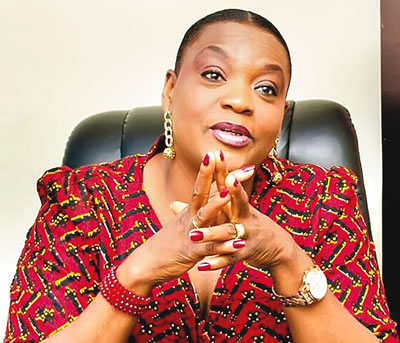The chief executive officer of Women Radio 91.7 Toun Sonaiya Okewale has urges state governors in the country to nominate women for ministerial appointments in the next government to be led by the President Elect, Asiwaju Bola Tinubu.
Okewale, who made the call, in a press statement, made available to LEADERSHIP Sunday said one female nomination per three nominees by governors, of the All Progressives Congress, chairmen and leadership in none APC states would translate to approximately 35 per cent in accordance with the affirmative action and bridge the vacuum created in 2023 elective positions.
Okewale averred that competent and capable women politicians and female technocrats hail from all Nigerian states , adding that every man and woman should play a part in rebuilding the socio-economic fabric of the country.
“While our men are great nation builders, they require the support and input of women. Only when men and women lead together can Nigeria progress,” she stated.
Harping on what Nigerian women are doing in ensuring that they are represented at both the national and state levels, Okewale said, “Nigerian women’s groups are maintaining a strong alliance in advocating for an increase in female representation in governance at all levels. Women Advocates Research and Documentation Center is coordinating women representatives of each state to present the Nigerian Women Charter of Demand to the government of each state.
“Additionally, League of Women Voters of Nigeria, 100 Women Lobby Groups and Women in Politics Forum members in each of the 36 states will visit governors to lobby for state nomination of women for ministerial and commissioner appointments. Nigerian Women Trust Fund is holding a strategic briefing with 9th Assembly female legislators on the 35 per cent affirmative action judgment to demand more appointments of women with the incoming administration.”
Despite increased lobbying and advocacy for gender balance and female inclusion in politics in the last three years, the just-concluded 2023 elections saw the lowest and most demoralising percentage of elected women senators and House of Representatives, with only three and 14, respectively, Okewale revealed.











